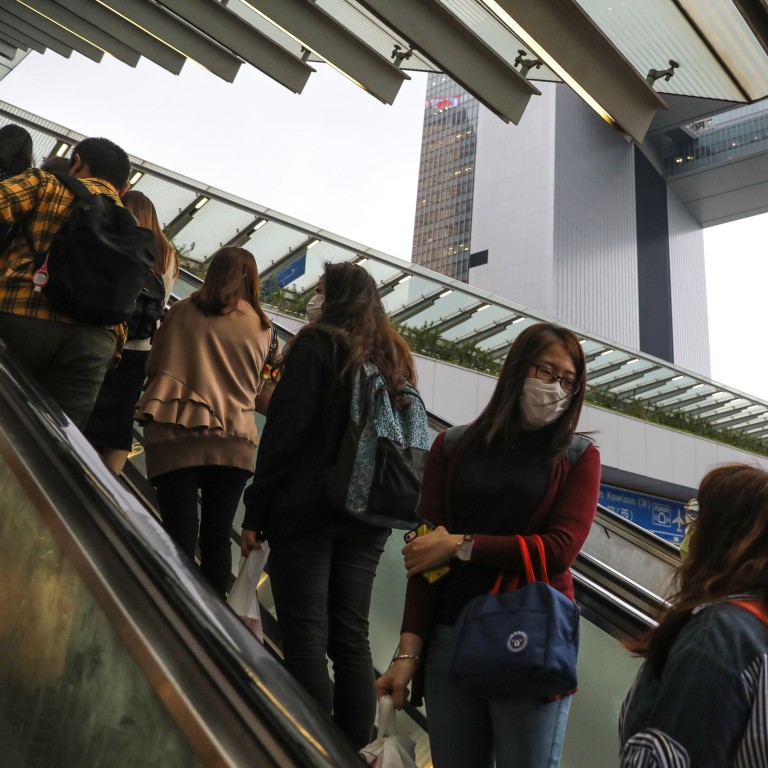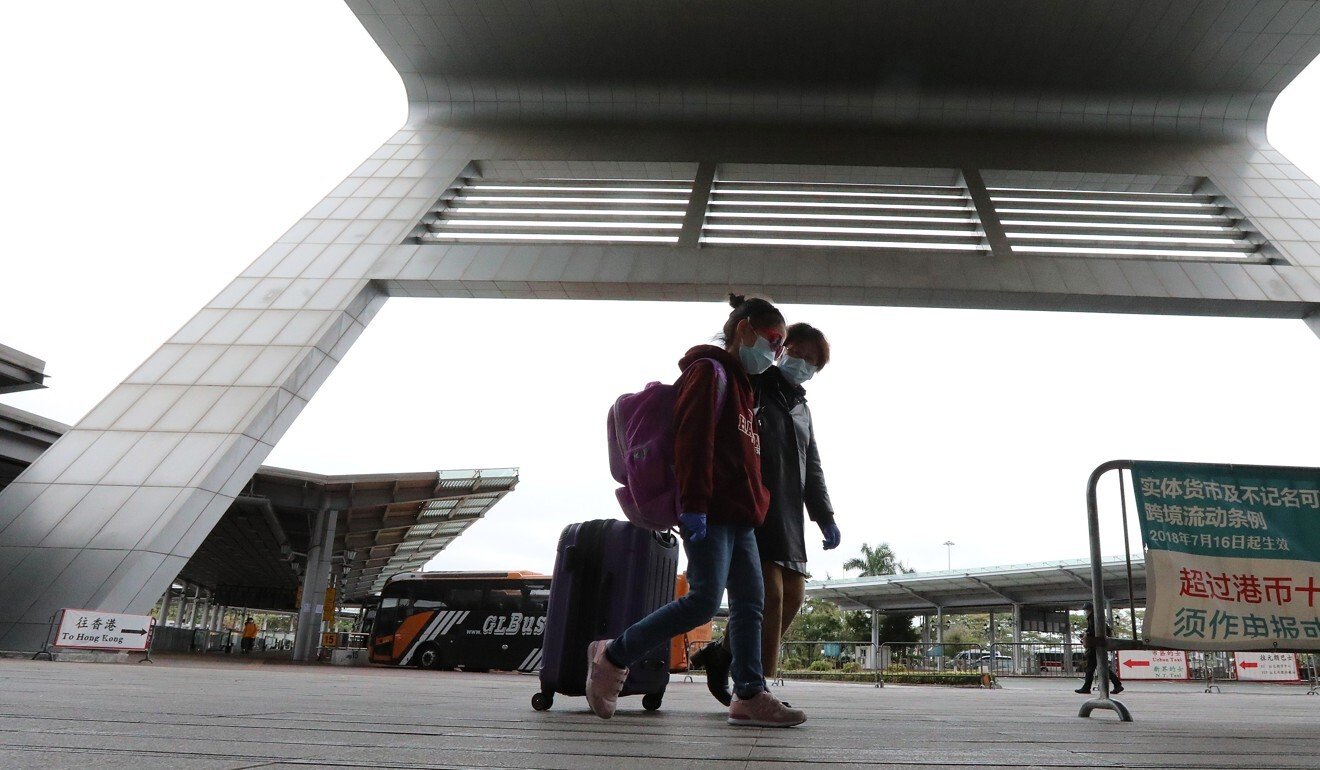
Coronavirus: Hong Kong government could fully resume services next week
- All departments told to come up with plans to bring civil servants back to the office, source says
- Administration also discussing restrictions on travellers going across the border with mainland Chinese counterparts, another insider says
The prospect of most of the city’s 180,000 civil servants heading back to office after more than a month working from home comes as the government is in discussions with its mainland Chinese counterparts on easing cross-border travel restrictions.
Separate sources confirmed the back-to-work planning and border-control talks, and revealed that the Executive Council on Tuesday would discuss whether to extend the 14-day quarantine rule for arrivals from mainland China set to expire on May 7.

The civil service asked staff who were not providing essential or urgent services to work from home from January 29 after the first infections emerged in Hong Kong. But following initial signs the disease was retreating, some employees returned to the office early last month, only to be told again to work from home from March 23.
Now the government is considering how to fully reopen for business, according to a source. “It means most departments might have about 80 per cent of their staff going back to office,” the insider said.
As the number of new cases drops, pressure has increased on the leadership to ease social-distancing rules, including the restrictions that limit travel across the border. The administration had been talking with its mainland Chinese counterparts for some time about the measures, according to a separate government source.
“We need to be on the same page, as the border has two sides,” the insider said. “The other party has to be prepared for any change in border-control measures.”
But demonstrating just how challenging integrating the policies could be, Shenzhen authorities announced that from Tuesday all travellers to the mainland city must stay at a designated quarantine centre for 14 days for medical observation. Previously, the self-isolation could take place at home.
One idea that has been floated is for a type of “coronavirus passport”, a health certificate designating the carrier is free of the disease.
“The government could consider granting some people, such as company executives and legal representatives, professionals and technicians, an entry permit,” said Exco member Jeffrey Lam Kin-fung. “Under the measure, they will be allowed to enter Hong Kong with a health certificate and a negative test result at the border checkpoints.”
The document would allow them to avoid the mandatory two-week quarantine, Lam said, adding
he would urge the mainland authorities to implement a similar measure for those who regularly crossed the border for business.
The suggestion of using certificates to allow people to begin moving again has been gaining ground in some countries as authorities look for ways out of socially and economically devastating lockdowns.
But the World Health Organisation has warned against them, saying they could pose a health risk by providing a false sense of security to the holders and their communities. In Hong Kong, at least nine Covid-19 patients were reported to have tested positive after being discharged from hospital.
Tourism lawmaker Yiu Si-wing said the government could consider lifting restrictions affecting travellers gradually.
“Don’t assume that if Hong Kong opens the border, the mainland will do the same,” Yiu said. “It’s not necessarily the case. Mainland authorities are very cautious. You can see from the new measure in Shenzhen. I think both sides need to communicate and take measures to open up gradually.”
Of the several hundred travellers who pass in and out of Hong Kong daily, very few were from mainland China, Yiu said. Those from across the border only came for urgent purposes, such as bereavements or to seek medical treatment.
Microbiologist Dr Ho Pak-leung said one option was to require mainland Chinese travellers to notify authorities of any recent exposure to high-risk areas or groups in the past month, and for them to pass nasal and throat sample tests in Hong Kong.
Coronavirus may exploit our own immune system against us, find researchers
But Dr Jospeh Tsang Kay-yan, a specialist in infectious disease, said immigration restrictions should remain in place for now. “The risk in Hong Kong may be getting low, but elsewhere in the world, there are still growing cases of Covid-19 infections,” Tsang said.
Residents still appear to be cautious about resuming normal life. The Hong Kong Public Opinion Research Institute released a series of indexes gauging people’s feelings on the issue, using a scale from zero to 100, which represented the greatest level of acceptance. The index on social gathering was the highest among four areas surveyed, at 40.2, while for work resumption it was 33.5, and for reopening public facilities 30.1. The index for restarting classes was 21.1.
The results were based on a series of online opinion polls conducted between April 14 and 24, involving 9,955 respondents.
Additional reporting by Cannix Yau


